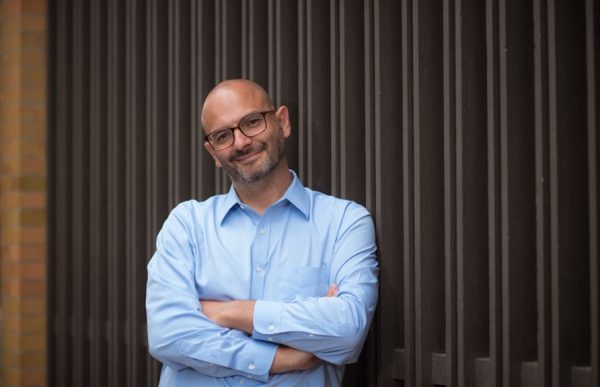Department of Nuclear Engineering

All Events
- This event has passed.
[Seminar] Experimental Boiling Heat Transfer Research: Accomplishments, Open Questions, and Future Directions
September 22, 2022 @ 4:00 pm - 5:00 pm
Event Navigation
Dr. Matteo Bucci
Associate Professor of Nuclear Science and Engineering
Massachusetts Institute of Technology
Abstract
In every field of science, the possibility of discovering and understanding new phenomena, or testing new hypotheses, is strongly related to, and limited by the capability of observation.
Here, we will discuss recent advances in experimental boiling heat transfer research made possible by unique experimental facilities and non-intrusive high-resolution optical diagnostics, e.g., high-speed infrared thermometry and phase detection techniques.
We will analyze these techniques’ capabilities and limitations in supporting the understanding of fundamental two-phase heat transfer problems. Examples are the growth and departure of bubbles from a heated surface, the distribution of the dry area fraction, the partitioning of heat flux, and the boiling crisis. Notably, we will discuss experiments conducted in prototypical LWR conditions, presenting first-of-a-kind observations of the boiling process and the boiling crisis.
The use of these diagnostics has been instrumental in providing an answer to some long-standing fundamental physical questions. However, access to these techniques is not sufficient. Nowadays, new understanding is hindered by our capability to analyze data, i.e., we can produce much more data than we can possibly analyze. This issue is critical for highly non-linear phenomena, e.g., boiling heat transfer, whose complexity is hidden beyond what a human eye can hardly see, or a human brain can timely analyze. We will discuss how artificial intelligence can alleviate this issue and, possibly, enable the development of autonomous, self-learning testing capabilities.
Biography
Dr. Matteo Bucci is Associate Professor of Nuclear Science and Engineering at MIT. He has joined the MIT faculty in 2016, where he teaches undergraduate and graduate courses in nuclear reactor engineering and design, and two-phase heat transfer. His thermal-hydraulics group at MIT focuses on two major research axes related to nuclear reactor safety and design: (1) New understanding of heat transfer mechanisms in nuclear reactors, (2) Engineered surfaces and coatings to enhance two-phase heat transfer. His group also develops and uses advanced diagnostics, such as high-speed infrared thermometry, and post-processing algorithms to perform unique heat transfer experiments. Matteo has published over 40 articles in the areas of two-phase flow and heat transfer, and surface engineering technology. For his research work and his teaching, he won several awards, among which the MIT Ruth and Joel Spira Award for Excellence in Teaching (2020), ANS/PAI Outstanding Faculty Award (2018), the UIT-Fluent Award (2006), the European Nuclear Education Network Award (2010), and the 2012 ANS Thermal-Hydraulics Division Best Paper Award (2012). In 2022, Matteo received the inaugural DOE Early Career Award for Nuclear Energy. Matteo is Editor of Applied Thermal Engineering and a consultant for the nuclear industry.
Thursday, September 22. 2022
4:00 pm seminar
Hybrid Option (Speaker is in person)
zoom (link upon request)
or
Room 1202 Burlington Labs


